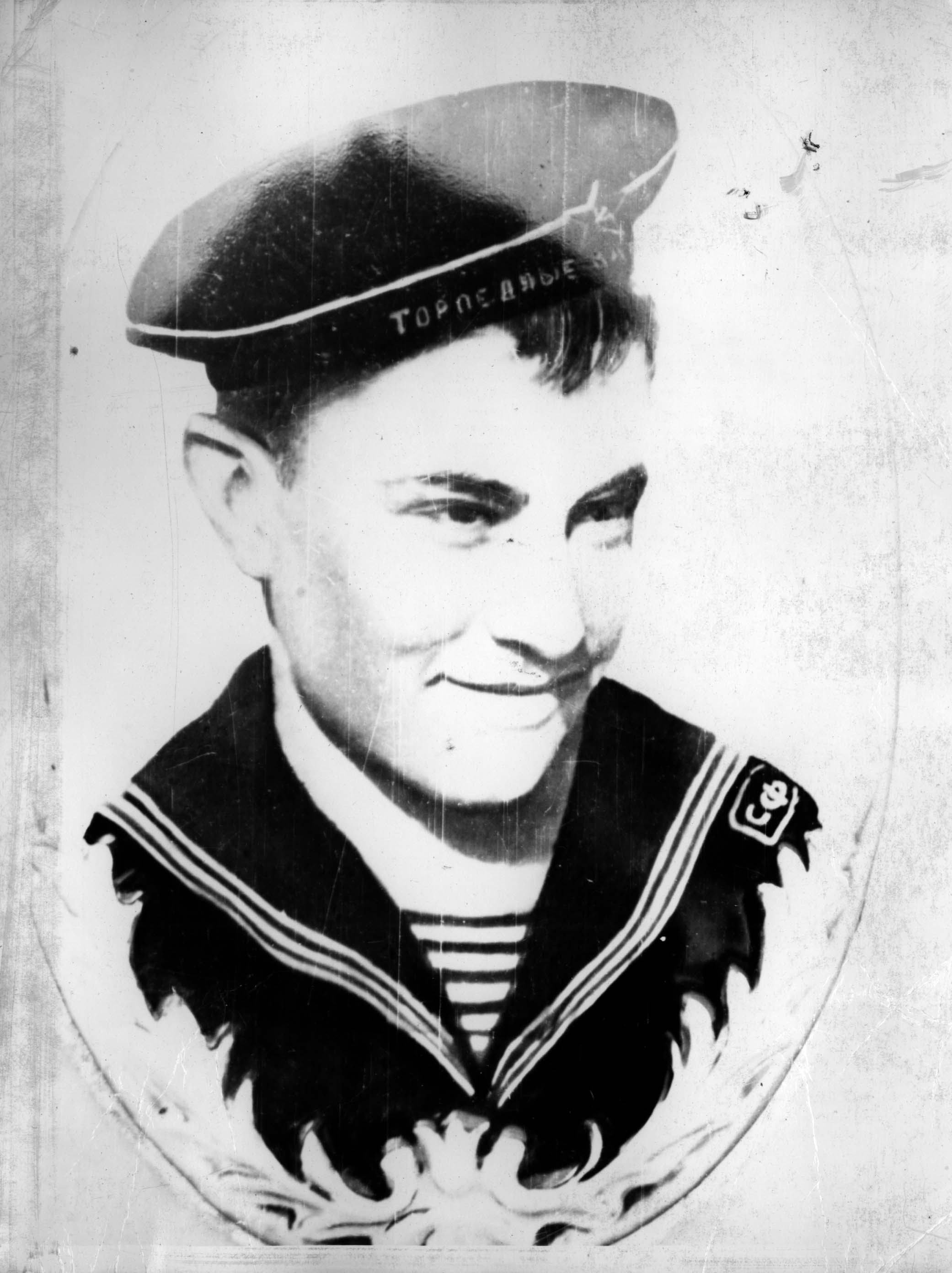Sasha (Aleksandr) Kovalev is one of the most famous young (he was only 17 years old when he died) heroes of the Soviet-German war of 1941-1945. A monument to him was erected in Severomorsk, a Soviet (now Russian) naval base on the Barents Sea. A ship bearing his name was part of the fleet of the Murmansk Shipping Company. There are streets named after him in five cities and towns, including in Murmansk and nearby Severomorsk. He is also the hero of several literary works.
Official Soviet literature about Sasha Kovalev fails to mention that the young hero was Jewish and that his original name was Rabinovich.
Aleksandr Rabinovich was born in 1927 in Moscow. His father Filipp was an engineer. His parents were "purged" in 1937: his father was executed, and his mother Elena was sentenced to an eight year term in the Gulag. Aleksandr was adopted by his mother's sister, the renowned literary translator Rita Rait-Kovaleva (known for her translations of Faulkner, Salinger, Vonnegut, Kafka and some other writers). Rita Rait-Kovaleva's husband, naval Captain Second Class Nikolai Kovalev succeeded in registering Sasha as his son Aleksandr Kovalev. Under this alias, Sasha ceased being officially considered a son of an "enemy of the people" and, therefore, in September 1942, he was admitted to a school for ship boys.
At the beginning of 1944, Aleksandr Kovalev was sent to serve on a destroyer of the Soviet Northern Fleet but a short time was transferred to a torpedo-boat with the job of engineer. In his first battle, on April 7, 1944, standing on the captain's bridge (where he took the place of the signalman who had been killed), the boy coolly and accurately reported to the commander of the boat details about enemy shells. Thus, he enabled the boat to evade being hit and helped to correct his ship's fire so that it succeeded in sinking the enemy transport.
On May 8, 1944, Kovalev's ship was bombed from the air. A bomb fragment broke the engine's manifold so that a jet of hot water mixed with oil and gasoline emerged. At any moment, the overheated engine could have exploded. That could well have led to the destruction of the ship and the death of its whole the crew. Sasha closed the hole with his padded jacket and exerting pressure with his body; he suffered considerable pain from the hot mixture. He, thus, protected the engine until others could help. Seriously burned, Sasha was put in sick bay. However, the following day the ship was hit by a German shell. Sasha was killed when a bulkhead fell on him.
Aleksandr Kovalev was awarded two military orders. The second, the Order of the Patriotic War, was awarded to him posthumously.

